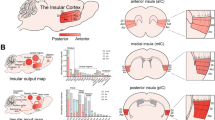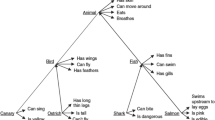Abstract
ERP dissociations between implicit and explicit memory have been confirmed by a large amount of evidence in theories of human memory. However, similarities between the two forms of memory have scarcely been studied. A possibility is that while implicit memory and explicit memory have independent components, they might additionally have shared components. To explore this question, an ERP experiment was conducted with a study-to-test paradigm, in which participants performed a “shallow” (color) study task or a “deep” (pleasant) study task, followed by either a lexical decision (implicit) test (Section 1) or a recognition (explicit) test (Section 2). An interference task was performed concurrently with either the encoding or the retrieval phase of the memory task for encoding interference condition or retrieval interference condition. We compared ERP signatures of implicit and explicit memory as a function of depth of processing or interference. Under the action of the same variables, 300–500 ms old/new ERP effects of implicit and explicit memory showed the same trend. These effects maybe all link with a perceptual representational system. 500–700 ms old/new ERP effects of the two memories were dissociated. They may probably reflect voluntary and involuntary recollection respectively. These results suggested that implicit and explicit memories are not completely independent of each other, but have both independent and shared components.
Similar content being viewed by others
References
Meng Y F, Guo C Y. Dissociations between implicit and explicit memory: An ERP study of face recognition. Acta Psychol Sin (in Chinese), 2006, 38(1): 15–21
Warrington E K, Weiskrantz L. The effect of prior learning on subsequent retention in amnesic patients. Neuropsychology, 1974, 12: 419–428
Graf P, Squire L R, Mandler G. The information that amnesic patients do not forget. J Exp Psychol Learn Mem Cogn, 1984, 10: 164–178
Nessler D, Mecklinger A, Penney T B. Perceptual fluency, semantic familiarity and recognition-related familiarity: An electrophysiological exploration. Cogn Brain Res, 2005, 22: 265–288
Boehm S G, Sommer W, Lueschow A. Correlates of implicit memory for words and faces in event-related brain potentials. Int J Psychophysiol, 2005, 55: 95–112
Buckner R L, Koutstaal W, Schacter A L, et al. Functional MRI evidence for a role of frontal and inferior temporal cortex in amodal components of priming. Brain, 2000, 123: 620–640
Badgaiyan R D, Schacter D L, Alpert N M. Priming within and across modalities: Exploring the nature of rCBF increases and decreases. NeuroImage, 2001, 13: 272–282
Meltzer J A, Constable R T. Activation of human hippocampal formation reflects success in both encoding and cued recall of paired associates. Neuro Image, 2005, 24(2): 384–397
Daselaar S M, Veltman D J, Rombouts S A R B, et al. Deep processing activates the medial temporal lobe in young but not in old adults. Neurobiol Aging, 2003, 24: 1005–1011
Tulving E. How many memory systems are there? Am Psychol, 1985, 40: 385–398
Squire L R, Ojemann J G, Miezin F M, et al. Activation of the hippocampus in normal humans: A functional anatomical study of memory. Proc Natl Acad Sci USA, 1992, 89: 1837–1841
Badgaiyan R D, Posner M I. Time course of cortical activations in implicit and explicit recall. J Neurosci, 1997, 17(12): 4904–4913
Curran T. The electrophysiology of incidental and intentional retrieval: ERP old/new effects in lexical decision and recognition memory. Neuropsychology, 1999, 37: 771–785
Rugg M D, Mark R E, Walla P, et al. Dissociation of the neural correlates of implicit and explicit memory. Nature, 1998, 392: 595–598
Schott B H, Henson R N, Richardson-Klavehn A, et al. Redefining implicit and explicit memory: The functional neuronanatomy of priming, remembering, and control of retrieval. Proc Natl Acad Sci USA, 2005, 102(4): 1257–1262
Turk-Browne N B, Yi D J, Chun M M. Linking implicit and explicit memory: Common encoding factors and shared representations. Neuron, 2006, 49: 917–927
Penney T B, Mecklinger A, Nessler D. Repetition related ERP effects in a visual object target detection task. Cogn Brain Res, 2001, 10: 239–250
Fleck D E, Berch D B, Shera R K, et al. Directed forgetting in explicit and implicit memory: The role of encoding and retrieval mechanisms. Psychol Record, 2001, 51: 207–221
Buchner A, Wippich W. On the reliability of implicit and explicit memory measures. Cogn Psychol, 2000, 40: 227–259
Luo Y J, Wei J H, Weng X C, et al. ERP effects of recognition of Chinese spoken and written words and neural mechanism of retrieval. Acta Psychol Sin (in Chinese), 2001, 33(6): 489–494
Penney T B, Mecklinger A, Nessler D. Repetition related ERP effects in a visual object target detection task. Cogn Brain Res, 2001, 10(3): 239–250
Fay S, Isingrini M, Ragot R, et al. The effect of encoding manipulation on word-stem cued recall: An event-related potential study. Cogn Brain Res, 2005, 24: 615–626
Paller K A, Kutas M. Brain potentials during memory retrieval provide neurophysiological support for the distinction between conscious recollection and priming. J Cogn Neurosci, 1992, 4: 375–391
Paller K A. Neurocognitive foundations of human memory. In: Medin D L, ed. The Psychology of Learning and Motivation, Vol. 40. San Diego, CA: Academic Press, 2000. 1–17
Herron J E, Quayle A H, Rugg M D. Probability effects on even related potential correlates of recognition memory. Cogn Brain Res, 2003, 16: 66–73
Itiera R J, Taylorb M J. Effects of repetition learning on upright, inverted and contrast-reversed face processing using ERPs. NeuroImage, 2004, 21: 1518–1532
Paller K A, Kutas M, McIsaac H K. Monitoring conscious recollection via the electrical activity of the brain. Psychol Sci, 1995, 6: 107–111
Swick D, Knight R T. Event-related potentials differentiate the effects of aging on word and nonword repetition in explicit and implicit memory tasks. J Exp Psychol Learn Mem Cogn, 1997, 23: 123–142
Author information
Authors and Affiliations
Corresponding author
Additional information
Supported by the National Natural Science Foundation of China (Grant Nos. 30170322 and 30570603), the Chinese Ministry of Education (Grant No. 20040028001), the Beijing Key Laboratory, and PHR (IHLB)
About this article
Cite this article
Meng, Y., Guo, C. ERP dissociation and connection between implicit and explicit memory. CHINESE SCI BULL 52, 2945–2953 (2007). https://doi.org/10.1007/s11434-007-0459-7
Received:
Accepted:
Issue Date:
DOI: https://doi.org/10.1007/s11434-007-0459-7




